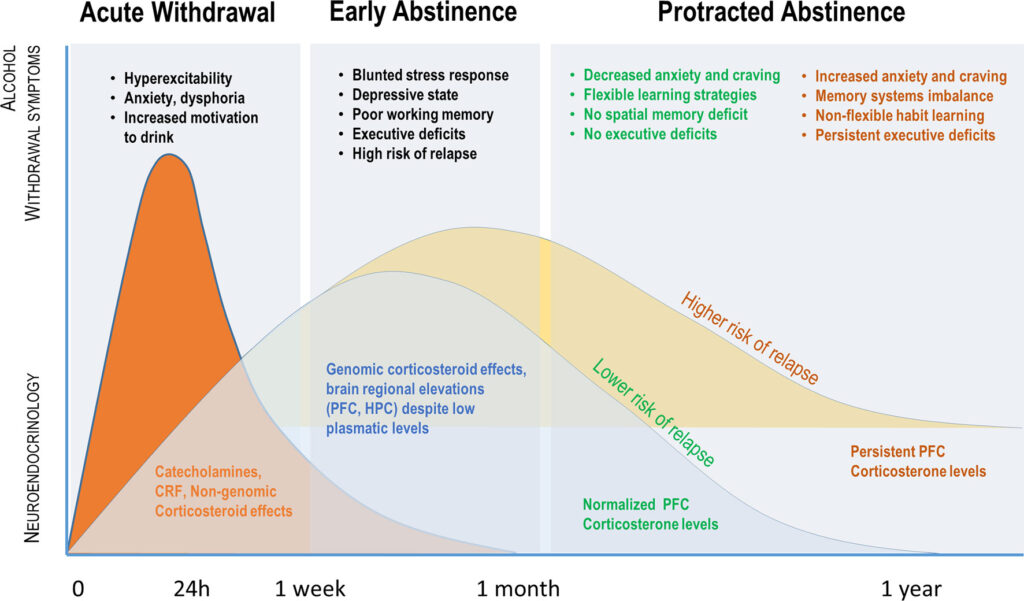Detoxing from alcohol can be a difficult process, but it is important to remember that you are not alone. Millions of people struggle with alcohol addiction, and many of them have successfully detoxed and gone on to lead happy and healthy lives.
The first step to detoxing from alcohol is to commit to the process. This means making the decision to quit drinking and sticking to it. You will need to be honest with yourself about your drinking habits and the reasons why you want to detox.
Once you have made the decision to detox, the next step is to prepare for the process. This includes getting rid of all alcoholic beverages from your home and making sure that you have a support system in place. You will also need to set some ground rules for yourself and find an alcohol detox program that suits your needs.
Alcohol detox is a challenging but rewarding process. By following this guide, you can increase your chances of success and make the most of your detox experience.

Why Should You Detox from Alcohol?
Detoxing from alcohol can bring numerous benefits to your physical and mental health. When you quit drinking, you are taking a significant step in making yourself healthier and improving your life. Alcohol contains numerous toxins that can be harmful to your body if consumed in excess, and when you detox, you are ridding your system of these potentially harmful toxins. In addition, quitting drinking can have a positive impact on your mood and enhance your quality of life. There are numerous studies that show that people who detox from alcohol have an increased sense of well-being and greater satisfaction in life. Another important benefit of detoxing from alcohol is reducing your risk of developing health problems related to alcohol abuse. Long-term alcohol abuse has been linked to high blood pressure, liver disease, heart problems, and some forms of cancer. Detoxing can help reduce your risk of developing these serious health conditions and improve your overall health. Additionally, it can also help you avoid the financial, social, and legal problems that are often associated with alcohol abuse.
Understand the Process of Alcohol Withdrawal
The process of detoxing from alcohol is commonly referred to as withdrawal. Withdrawal occurs when the body adjusts to the absence of the drug in the system. During the withdrawal process, you will experience a range of physical and psychological symptoms. These symptoms can range from mild to severe, and they can last anywhere from a few days to a few weeks. The severity and duration of withdrawal symptoms will depend on the individual’s physical and emotional state as well as the amount of alcohol that is being consumed. Common withdrawal symptoms include nausea, vomiting, headaches, tremors, racing heart, and sweating. In some cases, the withdrawal symptoms can be so severe that it is recommended that a medical detox program be used instead of attempting to detox alone. It is also important to remember that withdrawal symptoms can be dangerous and should always be addressed by a doctor or qualified health professional.

The First 72 Hours: Alcohol Detox
The first 72 hours of detoxing from alcohol are key to a successful detox journey. During this time, your body will be adjusting to life without alcohol, and you will need to make sure that you are doing whatever you can to stay on track. This includes avoiding triggers, such as people or places associated with drinking, making sure you are getting enough rest and proper nutrition and following your doctor’s instructions carefully. It is also important to remember that during this time, you may experience physical and psychological symptoms that can be quite uncomfortable. Some common withdrawal symptoms include sweating, shaking, nausea, anxiety, insomnia, and headaches. It is important to talk to a qualified professional about these symptoms and to let them know if they become severe. In addition to talking to a doctor, some strategies for managing withdrawal symptoms include getting plenty of rest, eating healthy meals, and using relaxation techniques such as deep breathing and meditation.
Getting Through the First Week
The first week of detoxing from alcohol is often the most difficult as your body continues to adjust to life without alcohol. During this time, you may experience an increase in withdrawal symptoms or an urge to drink. The best way to cope with these symptoms is to build a strong support network of friends and family that you can talk to and rely on for help if needed. Additionally, joining a support group or therapy program can help you stay motivated and increase your chances of success. It is also important to take care of your physical health, as this can help reduce withdrawal symptoms. This includes eating healthy meals, avoiding over-the-counter medications, getting plenty of rest, and avoiding caffeine and drugs. Additionally, exercise can help you manage your symptoms and stay motivated, although it is important to start with low-intensity activities and work your way up to more challenging exercises.

After the First Week: Physical and Mental Changes
As your body and mind adjust to alcohol-free living, you will start to notice some physical and mental changes. These changes can be beneficial and help with your recovery, so it is important to pay attention to them and make adjustments if needed. You may feel increased energy levels and improved sleep patterns, as well as a reduction in withdrawal symptoms. You may also experience an increase in your mental clarity and focus, as well as an increase in your overall mood. It is important to remember that this process is different for everyone. For some people, these positive changes may come quickly, while for others, they may take longer. As you progress through your recovery, it is important to focus on the positive changes and celebrate your successes, no matter how small.
Living Alcohol-Free: Ongoing Support
Detoxing from alcohol is a long-term process. After the initial detox period, you will need to work hard to maintain your sobriety and stay alcohol-free. Join a support group or find a mentor who has successfully detoxed from alcohol. This can help you stay motivated and on track with your recovery. It is also important to develop coping mechanisms for cravings and triggers. This includes identifying your triggers and having a plan in place for when they occur. Additionally, it can be helpful to develop healthy habits and activities, such as exercising, spending time with friends, and engaging in hobbies, to help manage cravings. Finally, make sure that you are taking care of your mental and physical health. The recovery process can be difficult, and it is important to take the time to take care of yourself. Regular exercise, eating healthy, and getting enough rest can make all the difference in living an alcohol-free life.

Detoxing from alcohol can be a difficult but rewarding process. With the right support and plan, you can be successful in your journey to break the cycle of alcohol abuse. It is important to remember that recovery is a process, and it is okay to take it one step at a time.

